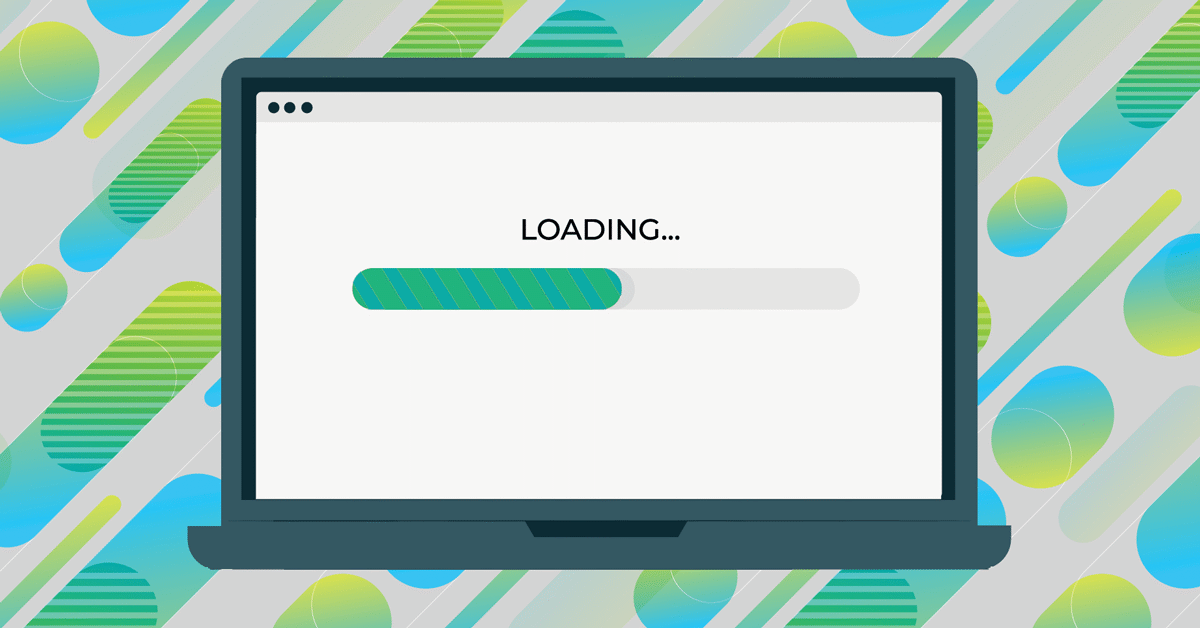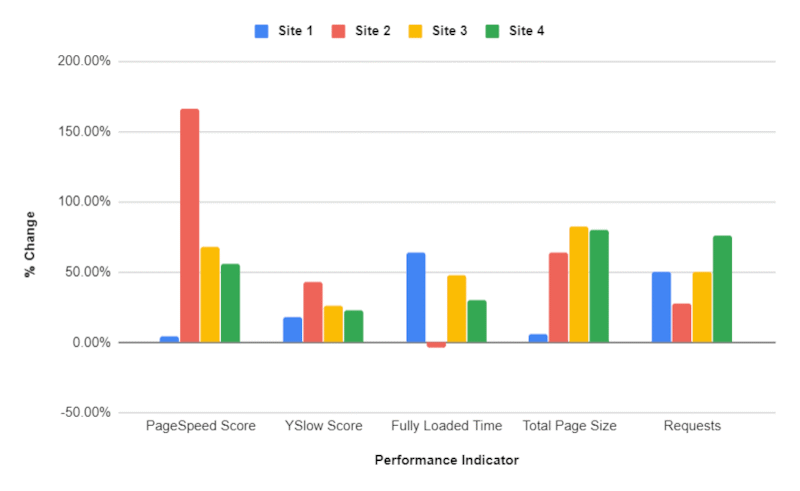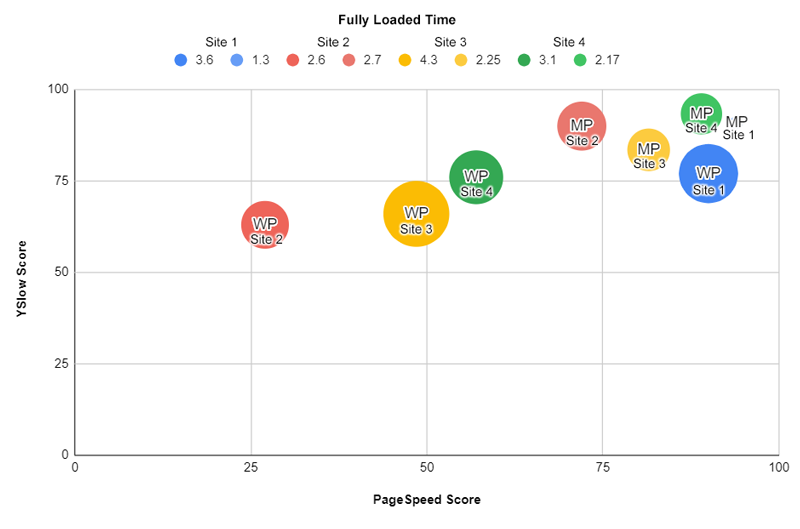
Google acknowledges that page load speed is a ranking factor. The correlation between page speed and ranking is undeniable. Many agencies turn to plugins to speed up websites, but these extensions could cost the client more and leave websites vulnerable. Many CMS platforms include site optimization features out-of-the-box. Marketpath CMS is one such platform, developed to be fast, flexible, and powerful for marketers and developers alike.
To see how our CMS performed against WordPress, we migrated four home pages from WordPress to Marketpath CMS. We tested each home page using GTMetrix.
Marketpath CMS outperformed WordPress by at least 27% in fully loaded time, total page size, total requests, PageSpeed Score, and YSlow Score.
Google uses page speed, among other indicators, as a ranking factor. As with any site, your team should follow page speed best practices. Loading is measured by Largest Contentful Paint (LCP), a new ranking factor used by Google. Having a page’s LCP below 2.5 seconds is good, and being over 4.0 is bad. If the page falls above 2.5 seconds, look to make improvements.
Your developer could spend up to 100 hours a week improving page speed optimizations. What about image optimization? Over the past 12 months, on average, images made up 54% of a pages’ overall weight(1).
Manually resizing and compressing images is one tactic. And, then there’s the size versus quality conundrum. You can shrink the overall size of an image by compressing it but at some point, the smaller you make it the more you reduce the quality. Plugins can automate this for non-technical editors who don’t have the tools or know best practices, however, they often add their own bloat.
Marketpath CMS is optimized for speed, and features automated page caching, JavaScript and stylesheet minification, image resizing and compression, and a content delivery network (CDN). These tools are not extensions or plugins, and you have access to them as soon as you create a site.
If WordPress is your website platform of choice, a plugin that offers all these tools costs $49 per month. Image optimizer plugins are available for free for sites with less than 5,000 users per month or less than 2 MB of images, but start at $4-$10 per month for more users or data. Keep in mind, plugins need regular, timely updates and outdated plugins can increase system bloat and security vulnerabilities.
For $49 per month, Marketpath offers a SaaS CMS that is fully managed and provides automatic, non-breaking updates. It includes all the features that help your marketers maintain fast page load speeds without bothering your developer.
Four separate websites were migrated from WordPress to Marketpath CMS. We used GTMetrix to measure their page speed before migration (in WordPress) and after migration (in Marketpath CMS).
The numbers below represent the average improvement of Marketpath CMS over WordPress. Home pages from the separate sites were loaded using WordPress and Marketpath CMS from the GTMetrix Vancouver, Canada server.
On average, home pages delivered from Marketpath CMS:
Average Improvements of Marketpath CMS over WordPress

Circle size indicates fully loaded time

While many variables contribute to the overall speed and performance of a CMS, we felt that these sites were representative of the average deployed WordPress website. Often, when a client’s site is deployed, the client’s agency finds a good and reasonably priced hosting plan.
Each site can be scaled vertically (faster CPU, more memory) or horizontally (more servers to carry the load). With these changes, come higher recurring costs. Marketpath CMS automatically scales, both vertically and horizontally, at no additional cost to the site owner.
We’d love to add to our dataset by measuring your existing WordPress hosted site and the migrated Marketpath CMS site. Additionally, we have a new migration tool that can save 75% or more of the time required to migrate a site.
1 WordPress websites, April 1, 2019 - April 1, 2020